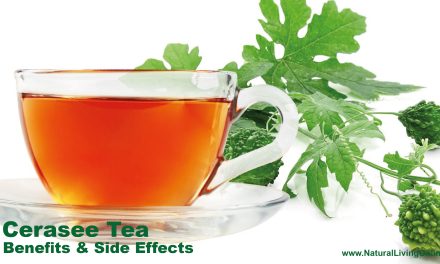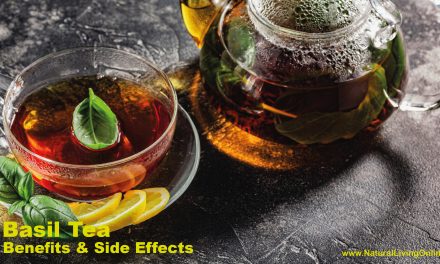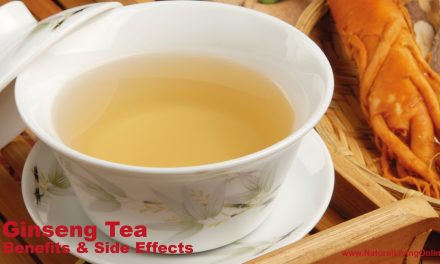Cinnamon tea has been enjoyed for centuries, not just for its comforting taste but also for its numerous health benefits. Drinking cinnamon tea can aid in lowering cholesterol and triglyceride levels, which may help reduce the risk of heart disease. It can also help alleviate menstrual cramps and other PMS symptoms, making it a useful remedy for many.
The nutritional profile of cinnamon tea includes small amounts of calcium, iron, and potassium, along with antioxidants that help protect the body from free radicals. However, consuming too much cinnamon, especially Cassia cinnamon, can lead to side effects like mouth sores and low blood sugar. Therefore, moderation is key to enjoying the benefits without the risks.
Key Takeaways
- Cinnamon tea offers heart health benefits and menstrual relief.
- The tea contains nutrients and antioxidants that support overall health.
- Excessive consumption can cause side effects; moderation is essential.
History and Types of Cinnamon
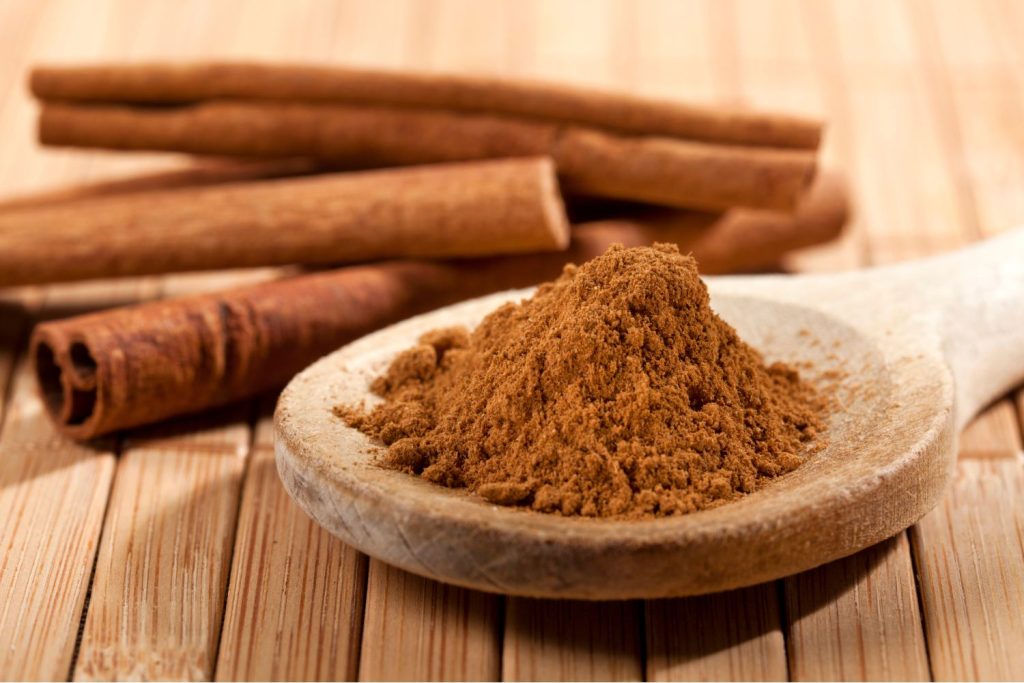
Cinnamon has a rich history and comes in two main types. Both types, Cassia and Ceylon, have unique characteristics and historical significance.
Cinnamon in Ancient Cultures
Cinnamon was highly valued in the ancient world. In Ancient Egypt, people used it for embalming, as a medicine, and even as a flavoring. The Egyptians sourced their cinnamon from regions like Sri Lanka and India.
In traditional Chinese medicine, cinnamon has been used for thousands of years. It was believed to improve energy, circulation, and digestion. This spice also played a significant role in Ayurvedic medicine, where it was used for a variety of ailments, including respiratory issues.
The ancient Romans used cinnamon in funeral rites and as an aromatic. Over time, cinnamon became a symbol of wealth and prosperity. It was so treasured that it often featured in legends and historical accounts of trade.
Cassia vs. Ceylon Cinnamon
There are two primary types of cinnamon: Cassia cinnamon and Ceylon cinnamon.
Cassia cinnamon, also known as Chinese cinnamon, is the more commonly available type. It has a stronger, more pungent flavor. Cassia sticks are thicker and harder. This type of cinnamon contains higher levels of coumarin, a compound that can be toxic in large amounts.
In contrast, Ceylon cinnamon is often referred to as “true cinnamon”. It is lighter in color and has a sweeter, more delicate flavor. Ceylon cinnamon comes from the inner bark of the Cinnamomum verum tree. It is softer and easier to grind into powder. Ceylon cinnamon has much lower levels of coumarin, making it a safer choice for regular consumption.
Both types of cinnamon have their uses and benefits, but it’s important to know the differences, especially for those using cinnamon for health purposes.
Health Benefits of Cinnamon Tea

Cinnamon tea offers various health benefits, including aiding in blood sugar control, enhancing heart health, providing powerful antioxidants, reducing inflammation, and supporting cognitive function.
Blood Sugar and Diabetes Control
Drinking cinnamon tea can help manage blood sugar levels. It helps improve insulin sensitivity, which allows cells to use glucose more effectively. This can be beneficial for those with diabetes or people at risk of developing the condition. Research suggests that regular consumption of cinnamon may reduce fasting blood sugar levels and improve HbA1c levels. This drink can be a helpful addition to a balanced diet aimed at controlling blood sugar.
Heart Health and Cholesterol
Cinnamon tea supports heart health by positively affecting cholesterol levels. Studies indicate that cinnamon can lower LDL cholesterol and triglyceride levels, while possibly raising HDL cholesterol. These changes can reduce the risk of developing heart disease. Additionally, cinnamon may help lower blood pressure, further supporting cardiovascular health. Regular consumption of cinnamon tea can thus be a simple way to help maintain heart health.
Cinnamon’s Antioxidant Capacity
Cinnamon tea is rich in antioxidants, which can protect the body from oxidative stress. Antioxidants like polyphenols help neutralize free radicals, potentially lowering the risk of chronic diseases such as cancer and heart disease. The antioxidants in cinnamon also support overall health by fostering healthy aging and immune function.
Anti-Inflammatory Effects
Cinnamon has notable anti-inflammatory properties. Regular consumption of cinnamon tea may help reduce markers of inflammation in the body. Chronic inflammation is linked to many health problems, including arthritis and heart disease. Ingredients such as cinnamaldehyde in cinnamon contribute to these anti-inflammatory benefits. This makes cinnamon tea a potentially useful beverage for managing inflammatory conditions.
Cognitive and Brain Health
Cinnamon tea may support brain health and cognitive function. Research shows that compounds in cinnamon can improve brain function, including memory and attention. These benefits are significant for reducing the risk of neurodegenerative diseases like Alzheimer’s. Additionally, the anti-inflammatory properties of cinnamon can protect brain cells from damage. Regular intake of cinnamon tea can be an easy way to support long-term brain health.
Nutritional Profile of Cinnamon
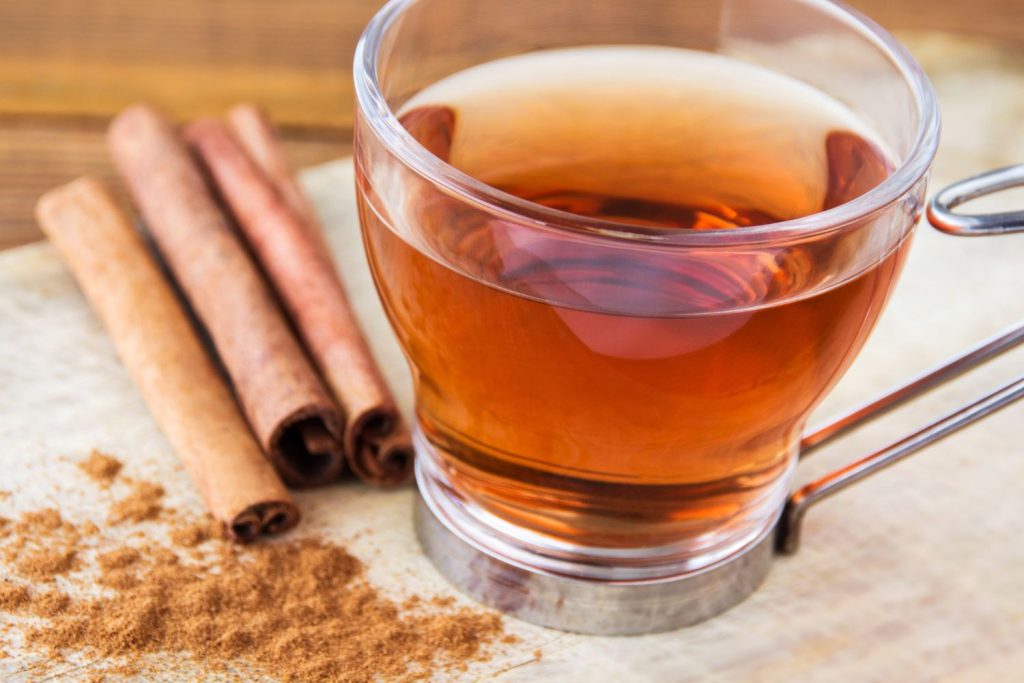
Cinnamon contains various nutrients essential to the body’s functioning. It is a low-calorie spice that provides significant vitamins, minerals, and dietary fiber.
Vitamins and Minerals in Cinnamon
Cinnamon is notable for its content of important minerals like calcium, potassium, and iron. Each teaspoon of ground cinnamon provides about 26 milligrams of calcium, which is crucial for bone health. Potassium, present in lesser amounts, helps in regulating blood pressure and muscle function.
Iron is another key mineral in cinnamon. It supports oxygen transport within the bloodstream and crucial metabolic functions. Small amounts of magnesium, essential for muscle and nerve function, are also present. These minerals make cinnamon a valuable addition to a balanced diet.
Fiber and Other Compounds
Cinnamon is also rich in dietary fiber, contributing around 1.6 grams per teaspoon. Fiber aids digestion, helps maintain healthy bowel movements, and can assist in controlling blood sugar levels by slowing glucose absorption.
Beyond fiber, cinnamon contains beneficial compounds like antioxidants and phenolic compounds. These antioxidants fight free radicals, potentially reducing the risk of chronic diseases. The phenolic compounds also help boost the immune system, supporting the body’s defenses against infections.
By incorporating cinnamon into one’s diet, individuals can take advantage of these health-promoting nutrients and compounds.
Precautions and Side Effects

Cinnamon tea offers various health benefits, but it is important to be aware of its potential risks, interactions with medications, and possible allergic reactions.
Safe Dosage and Potential Risks
Consuming cinnamon tea in moderation is generally safe. However, it is crucial to be mindful of the amount. Cassia cinnamon contains coumarin, which can cause liver toxicity if consumed in excessive amounts. An intake of more than 1.5 grams of cassia cinnamon per day could potentially lead to liver damage. Those with pre-existing liver conditions should exercise caution.
Pregnant and breastfeeding women should consult with a healthcare provider before adding cinnamon tea to their diet. High doses of cinnamon could pose risks, including nausea or vomiting. Moderation is key to avoid adverse side effects.
Interactions with Medications
Cinnamon tea can interact with certain medications. For instance, it may affect blood sugar levels and insulin resistance. Individuals taking medication for diabetes should monitor their blood sugar closely when consuming cinnamon tea. The tea may enhance the effects of these medications, potentially leading to hypoglycemia.
Furthermore, cinnamon may interact with blood-thinning medications. Those on blood thinners or anticoagulants should be cautious, as cassia cinnamon contains coumarin, which could increase the risk of bleeding. Always consult a healthcare provider to understand how cinnamon tea might interact with prescribed medications.
Allergic Reactions and Toxicities
Some individuals may experience allergic reactions to cinnamon. Symptoms might include skin irritation, rash, or difficulty breathing. It is essential to discontinue use and seek medical advice if any allergic reactions occur. Consuming large amounts of cassia cinnamon may also pose toxicity risks due to its coumarin content.
Additionally, improper preparation methods could result in contamination, such as salmonella. Ensure cinnamon is sourced from a reliable supplier and prepared safely to avoid foodborne illnesses. Awareness of these risks helps in enjoying cinnamon tea safely while mitigating potential adverse effects.
Culinary Uses and Recipes

Cinnamon, whether ground or in stick form, can add a warm, aromatic flavor to both sweet and savory dishes. It is commonly used in a variety of beverages and can enhance the taste of many culinary creations.
Beverages with Cinnamon
Cinnamon tea is a popular drink known for its warm and inviting flavor. It is made by steeping cinnamon sticks or ground cinnamon in hot water. This tea can be enjoyed on its own or with added honey and lemon for extra taste. It can also be added to other teas like green tea as well.
Another favorite is spiced cider, where cinnamon sticks are used to infuse apple cider with a sweet, aromatic flavor. This drink is often enjoyed warm and is perfect for chilly days. Cinnamon can also enhance coffee drinks. A sprinkle of ground cinnamon on a latte or cappuccino adds a unique twist to traditional coffee.
Adding a cinnamon stick to a hot chocolate can make it more flavorful. Refrigerated drinks like iced tea or lemonade can also be infused with cinnamon for a refreshing taste.
Savory and Sweet Dishes
Cinnamon is widely used in baking to create delicious desserts. It is an essential ingredient in apple pies, where it complements the sweetness of the fruit. Cinnamon rolls, another popular treat, rely on ground cinnamon for their characteristic flavor.
In savory dishes, cinnamon can add depth and warmth. It is often found in Middle Eastern and Indian cuisines. Ground cinnamon is used in spice blends like garam masala, which enhances the flavor of meats and stews.
Cinnamon sticks are sometimes added to rice dishes, giving them a subtle, aromatic taste. In savory recipes, the balance between sweet and savory is crucial for creating well-rounded dishes.
Frequently Asked Questions
What are the health benefits of drinking cinnamon tea?
Cinnamon tea is rich in antioxidants that help neutralize free radicals, which are linked to diseases such as cancer and heart disease. The tea also provides small amounts of nutrients like calcium, iron, and potassium. Additionally, it may help reduce blood sugar and inflammation.
Can cinnamon tea have positive effects on sexual health?
Though more research is needed, there are claims that cinnamon tea could potentially boost sexual health by improving blood flow. Improved circulation might enhance libido and sexual function. However, it’s essential to consult a healthcare provider for personal advice.
Are there specific benefits of cinnamon tea for women’s health?
Cinnamon tea may be particularly beneficial for women experiencing menstrual cramps and other PMS symptoms. It has been suggested that the tea can help make these symptoms more bearable by reducing pain and discomfort.
What are the potential side effects of consuming cinnamon tea?
Possible side effects of consuming cinnamon tea include liver damage if taken in large quantities, especially from cassia cinnamon, which contains coumarin. It may also cause allergic reactions in some individuals. It is advisable to consume it in moderation and consult a healthcare provider if uncertain.
How often is it recommended to drink cinnamon tea?
For most people, drinking one to two cups of cinnamon tea per day is considered safe. However, it is important to stick to Ceylon cinnamon if you have certain health conditions. Always consult with a healthcare provider to determine the best amount for your specific needs.
When is the best time to consume cinnamon tea for maximum benefits?
Cinnamon tea can be consumed at various times throughout the day. Drinking it in the morning may help control blood sugar levels, while an evening cup can provide a calming effect before bed. Adjust the timing based on personal health goals and lifestyle.
References:
Effect of Cinnamon Tea on Postprandial Glucose Concentration
Effectiveness of cinnamon tea in reducing weight among late obese adolescence
The therapeutic perspective of cinnamon (Cinnamomum verum) consumption against metabolic syndrome
This website does not provide medical advice.
All information provided on this website, and on associated social media networks, including but not limited to texts, images, and numbers are for general information purpose only. It is not intended as medical advice and it does not include all possible precautions, side effects, or interactions that may occur. Neither NaturalLivingOnline.com nor its author/founder take responsibility for how you use this information. Statements contained on NaturalLivingOnline.com have not been evaluated by the FDA. You should conduct thorough research via multiple sources and consult your physician or qualified doctor before using any essential oil or herbal remedy. Information on NaturalLivingOnline.com must not be relied upon for medical, legal, financial or other decisions.




